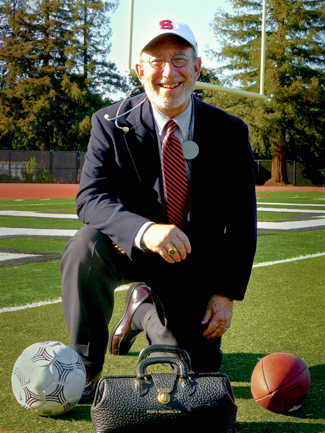Q. What do I tell physicians to think about as they plan for a caree transition?
A. It is important for a physician contemplating a career transition to have certain important elements of self-understanding. These five elements of self-understanding include the following:
- What is your Purpose?
- What are your Motivated Skills?
- What are you Passionate about with respect to your work?
- What is your Personality Style and how does that affect your work?
- What are your most-important Career Values?
If you do not know the answers to these five elementary questions, you will certainly benefit from working with a career professional to define your uniquely individual answers.
Q. Be clear why you want to leave your current job/career.
A. There are many good and appropriate reasons to leave a medical career. Just a few of them are listed below.
That said, leaving a job or career because you are burned out, and not having sought out help to deal with your burnout, is usually not your best option. The reason is that burnout is both treatable and reversible. It is not unusual for a burned out physician, after receiving appropriate treatment for burnout, to change their mind about leaving their practice. They re-discover the joy of practicing medicine.
Appropriate reasons to leave a medical practice may include:
_ A permanent medical disability
_ A permanent psychiatric disability
_ Skill vs. Reward Mismatches
_ Expected vs. Actual Workload Mismatches
_ Unresolvable Personality Conflicts with coworkers/administrators
_ Unresolvable Gender Discrimination
_ Unresolvable Age Discrimination
_ Unresolvable Turf Battles with other groups or specialties
_ Unresolved work habit discrepancies within a medical practice
_ Academic Career Cycle Issues
_ Changing physical skill sets with age
_ Cognitive decline with age
_ Full or part-time retirement
_ Desire to work full-time or part-time in a non-medical career
Q. Should I plan for a part-time vs. a full-time career transition?
A. This depends on a number of factors and circumstances, which will be different with every physician. In cases in which a physician has become permanently disabled, a new full-time career would typically be appropriate. Those who have lost their positions due to downsizing of the practice or institution, or have been fired, would also typically be best served with a new full-time job/career.
That said, my experience is that when possible, it is always best to start a new career slowly; in other words to transition to a new career gradually. The latter plan is easier and less stressful on both the physician and their family, and gives the physician time to “learn the ropes” in the new career.
Some physicians who still desire to keep a hand in clinical medicine, but also have a burning desire to start a new business outside of their medical field, or outside of medicine completely may want to downsize their clinical position and start-up a part-time new career. They then have two simultaneous part-time careers and two independent income streams. I call this scenario a PORTFOLIO CAREER TRANSITION.
Q. Should a physician thinking about a career transition reveal their plan with their practice colleagues or administrators in advance?
A. My best advice, based upon my coaching practice experience is: DON’T DO IT!! Physicians are extraordinarily honest and conscientious. So it is no surprise that many believe the right thing to do is to discuss their plans to leave medicine, or to start a new non-clinical career with their practice partners or administrators in advance.
In reality doing so can backfire in a number of very damaging ways. Your practice partners are not really interested in what new start-up idea you want to hatch. Their primary interest is in seeing the practice flourish. They want to go to sleep at night knowing that you are committed to the practice as the primary obligation for your time, and that you maintain your level of productivity.
KEEP TIGHT PRIVACY BOUNDARIES AROUND YOUR THOUGHTS OF LEAVING OR DECREASING YOUR CLINICAL EFFORT! First, it really is none of their business what you plan to do with your own time away from work. Second, they may feel threatened to hear of your plans, which can lead to all kinds of trouble. Your plan may be grounds to be fired, or to lose partnership status. (I have seen both of those happen to physicians who announce transition plans prematurely.)
The proper time to announce your plan to reduce your clinical effort, or to retire from your practice to start up a new venture is when you have completed ALL of the necessary planning steps, obtained new training or learning (if that is part of your transition plan), secured a new part-time “internship” or a paying job with others (if that is a part of your plan) and are ready to LAUNCH.
Then, and only then should you be sure to give the required amount of notice, based upon your employment agreement. Better yet, give them more notice than is required. Do whatever you have to do to keep good relations and don’t burn bridges.
Q. How long does it take for a physician to make a career transition?
A. Without going into modern career theory (I do discuss this theory in detail in my new book), there are two fundamentally different kinds of career transitions: The Mini-transition and the Major Transition.
Mini-transitions are career changes that do not require that you change your field of practice, do not require that you sell your home, do not require that you move to a new community. What they DO require is that you obtain some new form of learning, or you learn a new procedure or skill to use in your regular practice. Mini-transitions typically take six months or less to accomplish. This is not a strict rule, and in some cases mini-transitions for physicians may take up to one year.
Major Career Transitions are career changes that lead to an entirely new field of endeavor. For a physician, a major career transition means leaving your field of specialization for an entirely new clinical specialty, or to a career outside of clinical medicine entirely. Major transitions require more time and are obviously more complex than mini-transitions. On average, Major transitions take physicians about two years from start to finish. That time is quite variable, and can be longer than two years. Working with a career transition professional will always shorten the time to complete a major transition.

